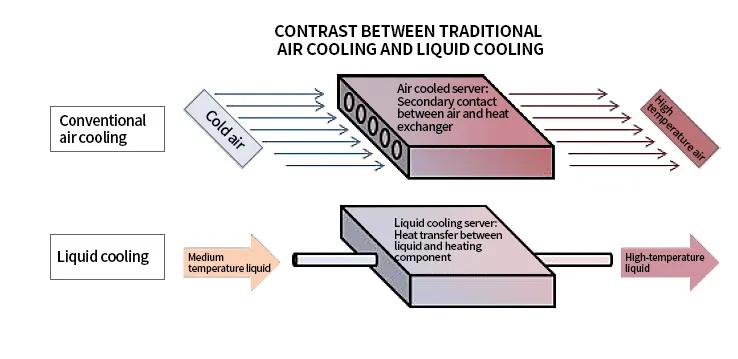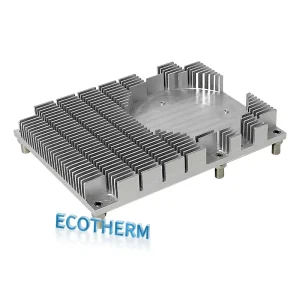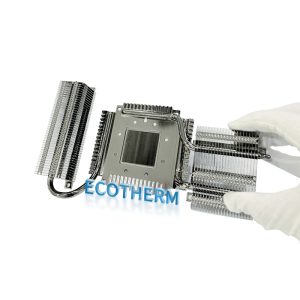Advantages of Liquid Cooling Over Traditional Air Cooling
Higher cooling efficiency:
Liquid cooling technology can more effectively reduce the temperature of devices, improving their performance and lifespan. Since liquids have better thermal conductivity than air, they can transfer heat away from the device more quickly.
Lower noise levels:
Compared to the noise generated by fans, liquid cooling operates more quietly, providing a more peaceful working environment.
More flexible design:
Liquid cooling systems offer greater design flexibility, allowing heat exchangers and fluid piping to be installed in different locations, better accommodating the design requirements of the equipment.
More environmentally friendly:
Liquid cooling can save energy and reduce environmental impact. Compared to the heat generated by fans, liquids can be more easily recycled and reused.
The main disadvantage of liquid cooling technology is its higher cost, as well as the need for more maintenance and a more complex design. However, as the performance of electronic devices continues to improve, thermal management has become an increasingly prominent issue, and liquid cooling is expected to become one of the mainstream methods for cooling electronic devices in the future.



